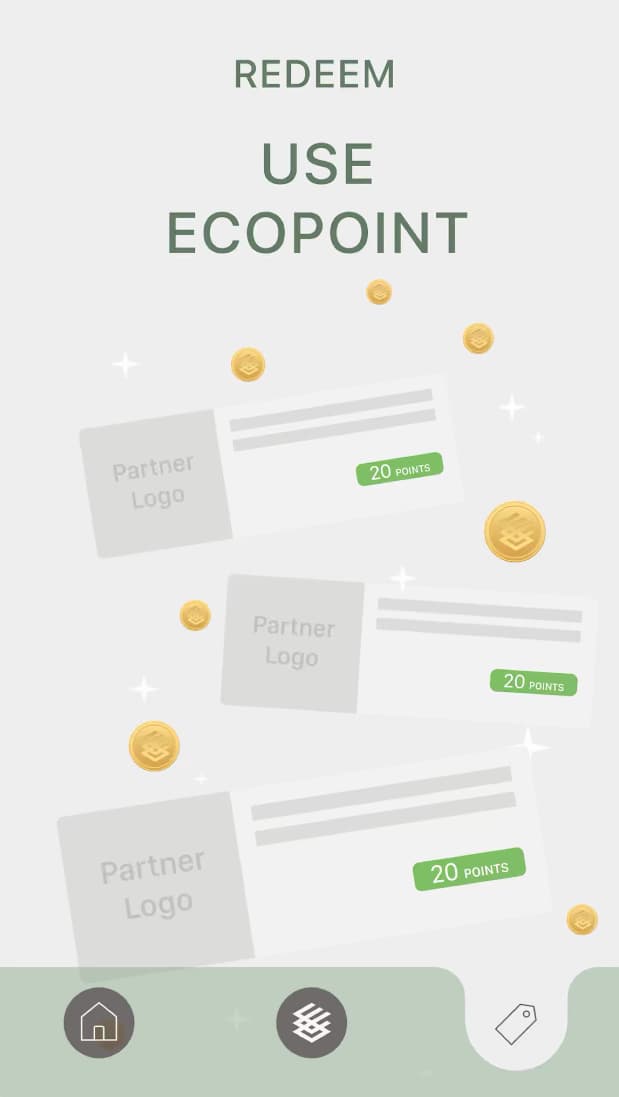KMITL is aware of the importance of maintaining cleanliness and having a beautiful landscape in harmony with the natural environment and promoting environmental consciousness. It has implemented projects to support the policy to develop the institute into a sustainable green university in line with the five-stage policy and the fourth strategy to develop a green university, as follows:
Waste sorting project: Because the daily activities of personnel, staff, and students and activities of the institute produce a large amount of waste, this project was initiated to sort solid waste, such as newspaper, A4 paper, crate, and glass and plastic bottles. The initial phase of the project focuses on cleaning staff in each building in order to provide them with knowledge and understanding of proper waste separation and lay a foundation for an efficient waste management system.
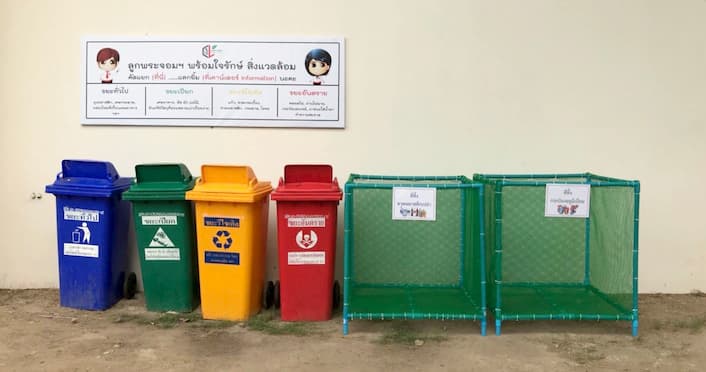
A compost project aims to produce compost from organic waste, such as leaves and grass, to reduce the cost of fertilizer and make good use of waste materials. The compost will be used as fertilizer for trees and grass and restore and maintain soil fertility rich in organic matter. If a large amount of compost can be produced, it can be distributed to members of KMITL and nearby communities for use or sold to create income for the institute.
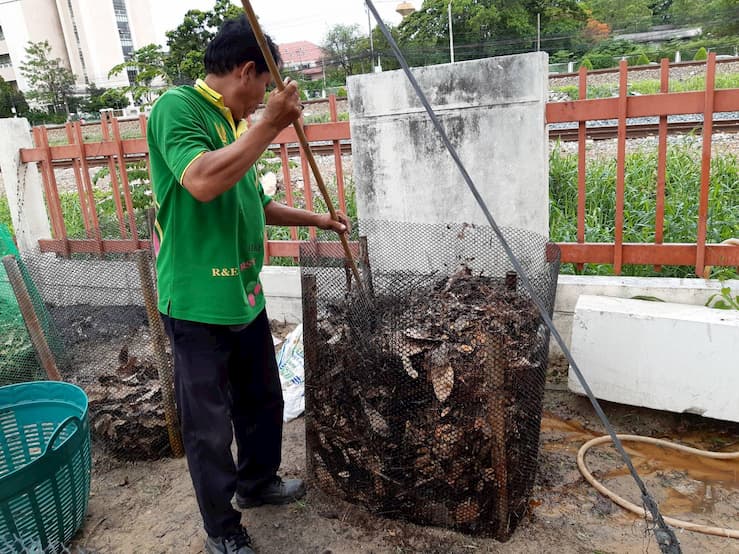
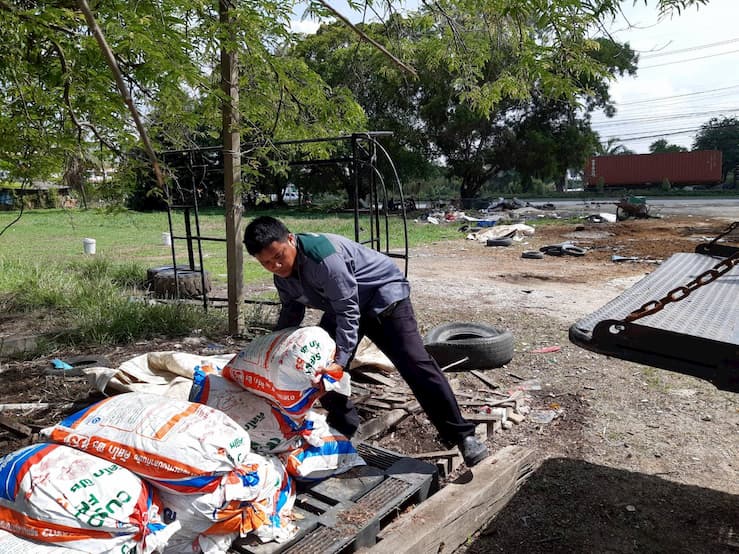
KMITL has implemented a policy and various projects to reduce the use of plastics in 2018 and raise awareness of the danger of plastic to living organisms, including aquatic animals. These projects also build environmental awareness among students and personnel and encourage them to become a socially and the environmentally responsible consumer in line with the UN’s “Beating Plastic Pollution” goal and Sustainable Development Goals. KMITL has collaborated with organizations and agencies, such as the Sustainable University Network of Thailand and CP All Public Company Limited, to reduce the use of plastic as follows:
- Cancel the use of plastic bags, except for hot items. Sell or have cloth bags to borrow instead.
- Set up a plastic bag donation point in front of a convenience store (reusable plastic bag).
- Reduce plastic cup waste. Convenience stores offer discounts for customers who bring their own cups.
- Reduce the use of plastic utensils and straws. Convenience store clerks will always ask customers first whether they need plastic utensils or straws.
- Cancel the use of foam containers in both convenience stores and the institute’s canteen.
- Create a media campaign to raise awareness among students and staff.
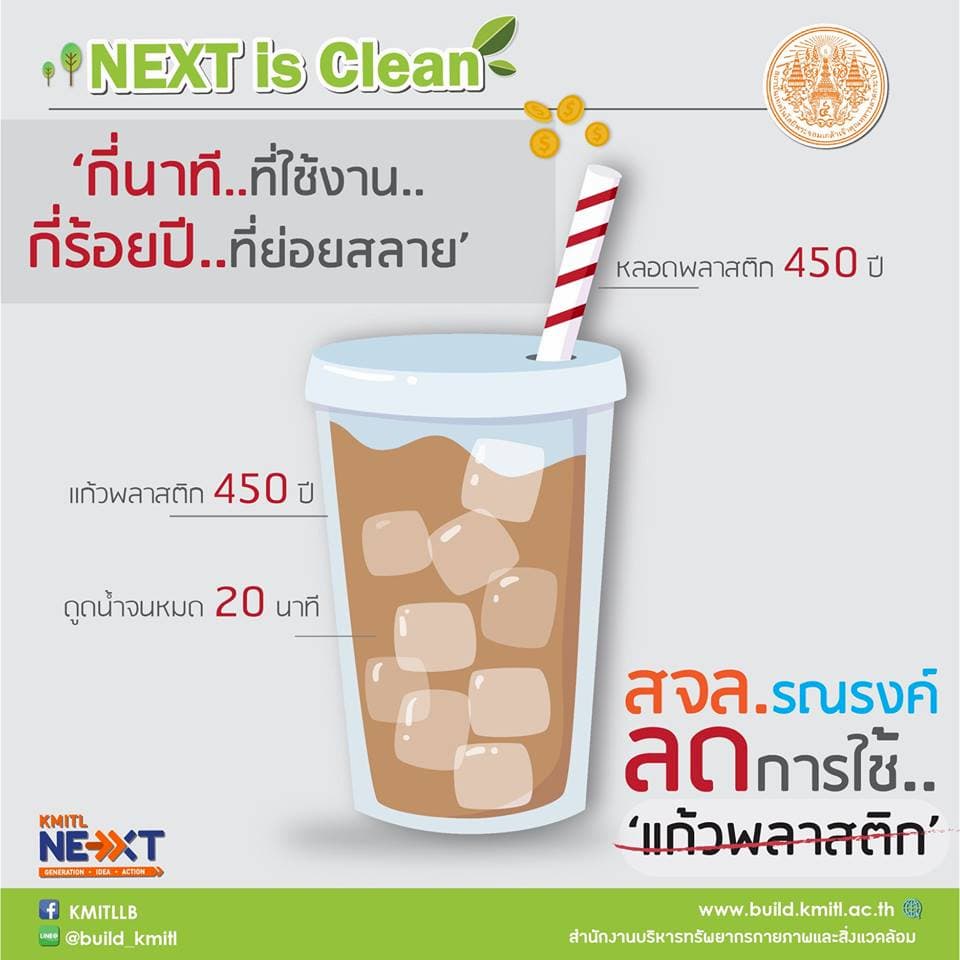
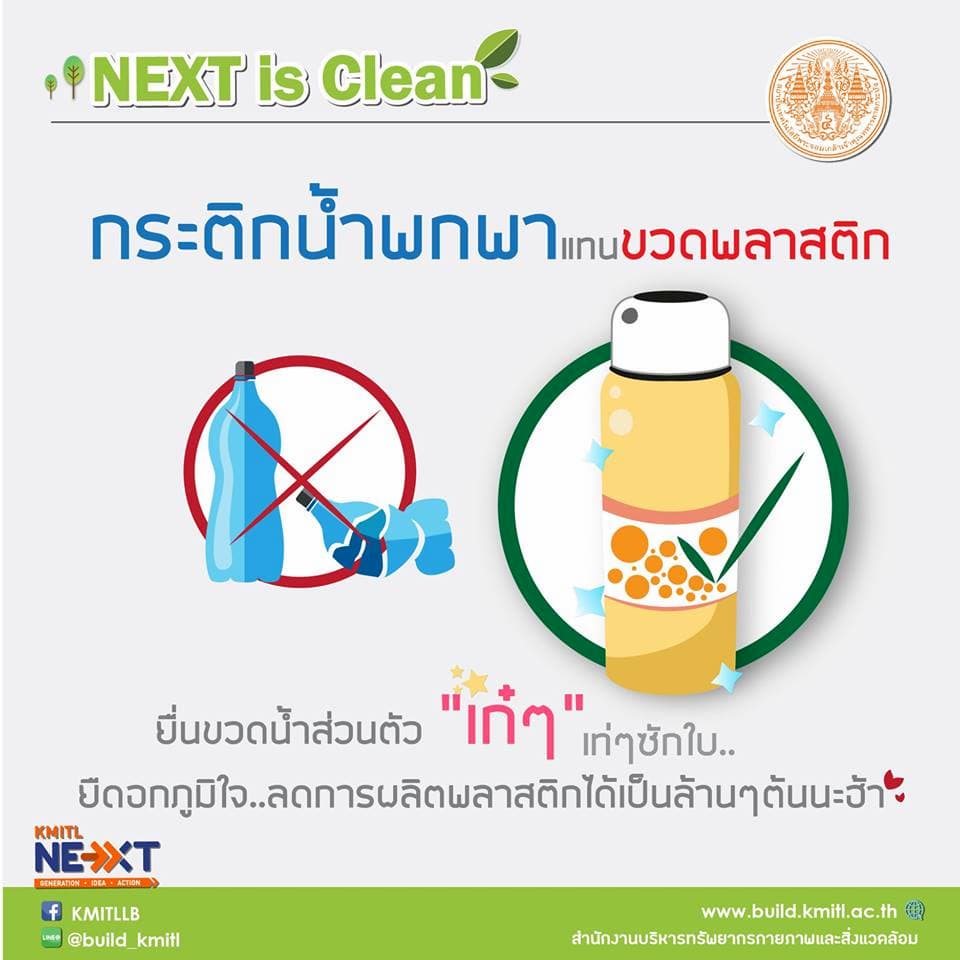
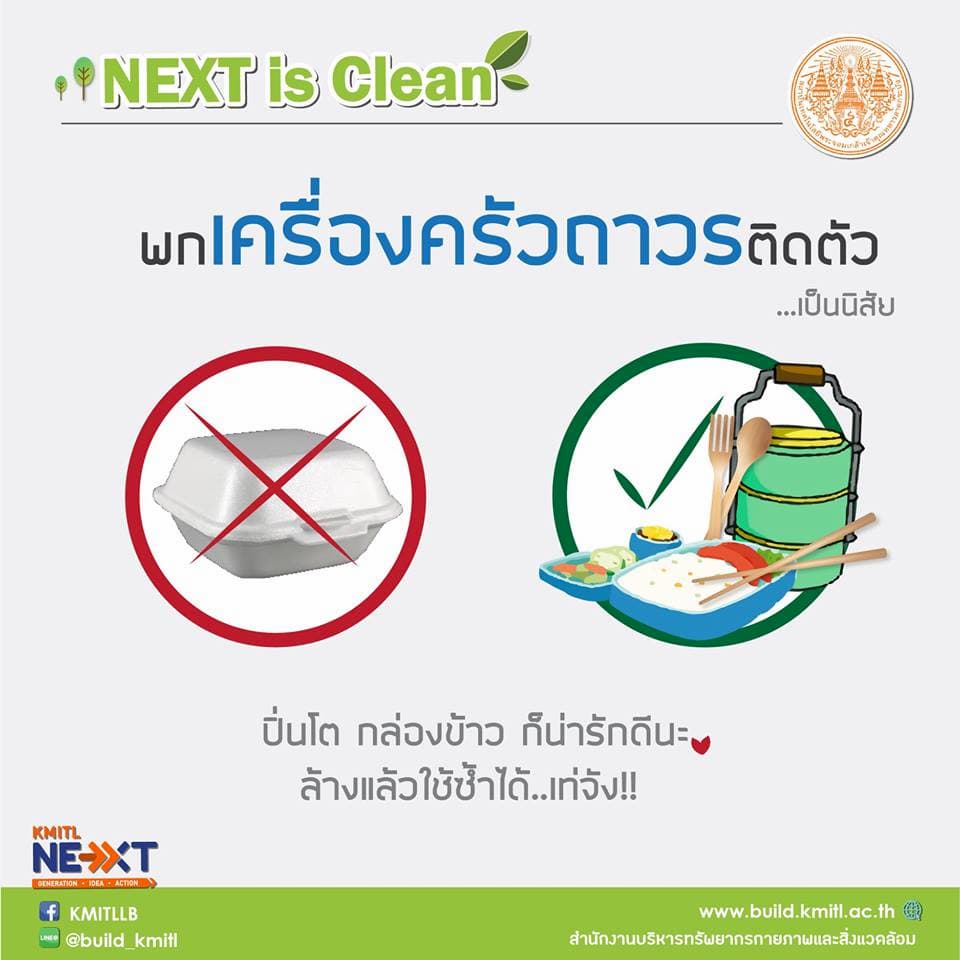
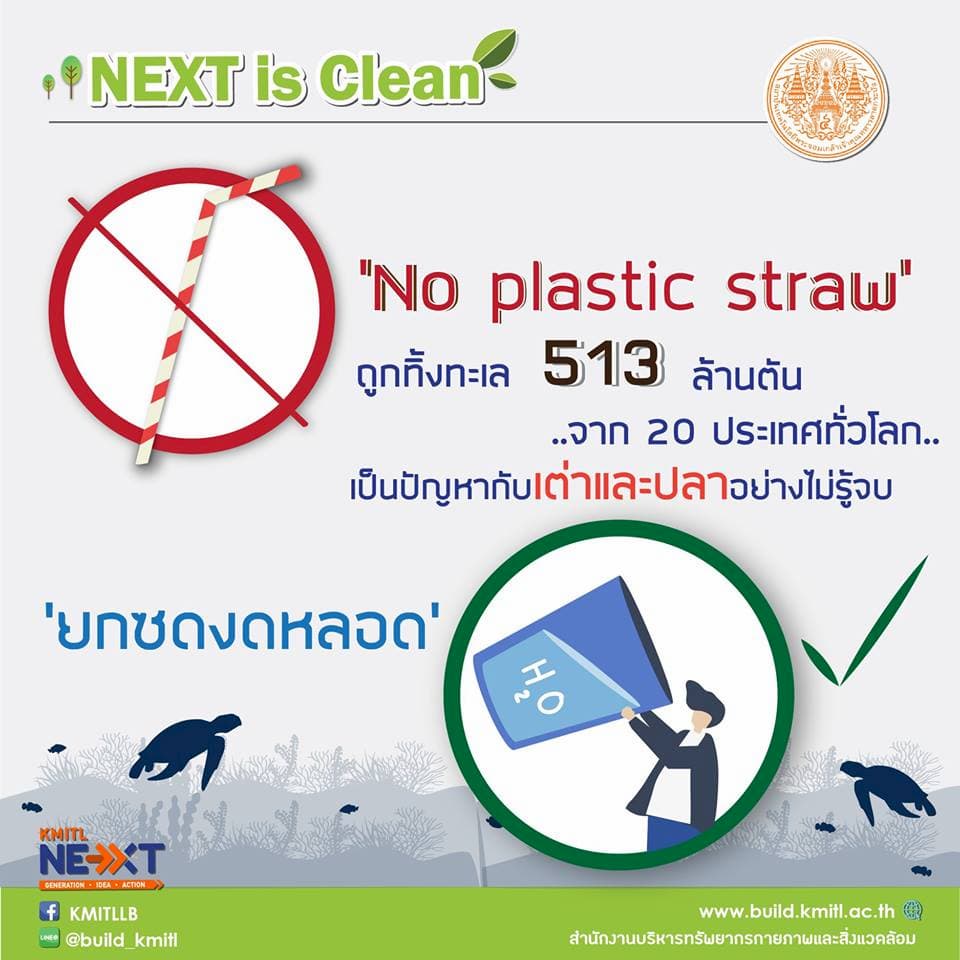
Moreover, KMITL has collaborated with Kid Kid Company Limited to use the “ECOLIFE” application in both convenience stores and other stores within the institute. Smart phones are very popular today and provide a convenient way to evaluate and measure operating results. This application will collect information about the use of plastic containers and utensils from the application’s user. As a result of a serious campaign and public relations, KMITL was able to reduce the use of plastic bags in the institute’s convenience stores by up to 50,000 bags per month.
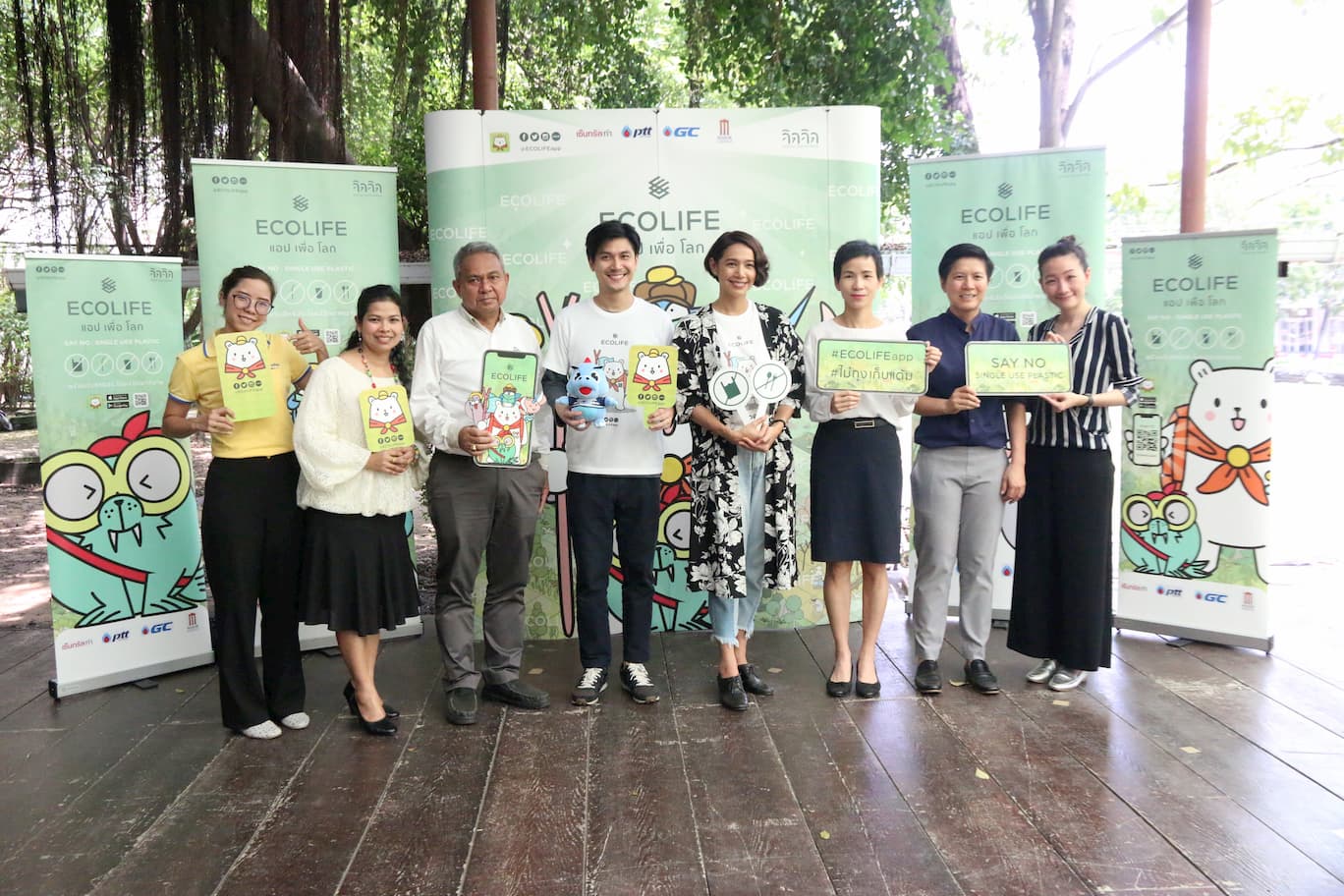
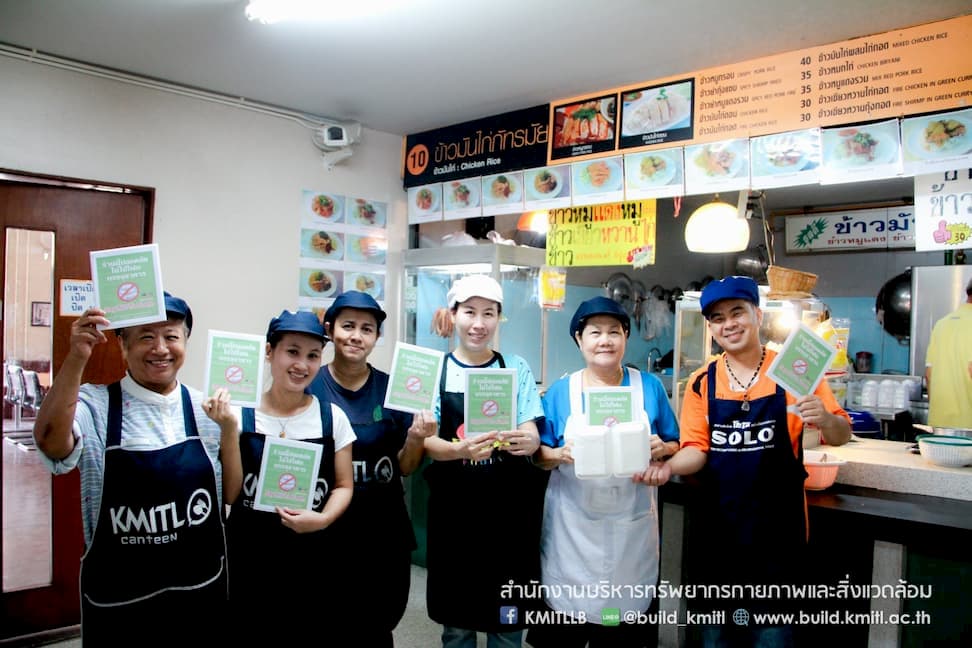
ECOLIFE Application
Select
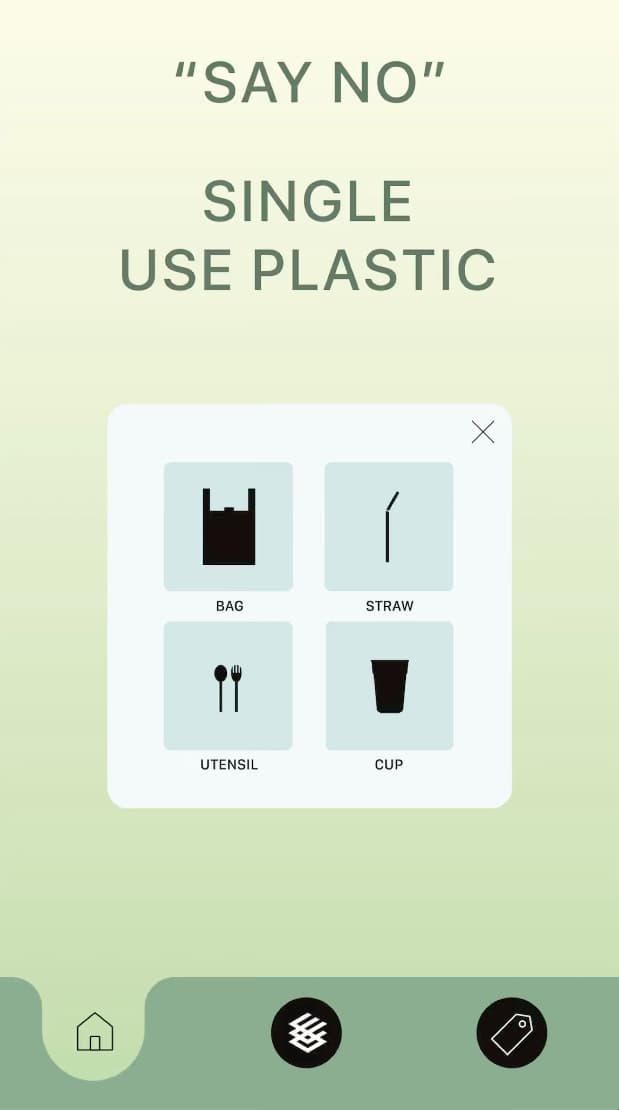
Submit

Earn

Redeem
